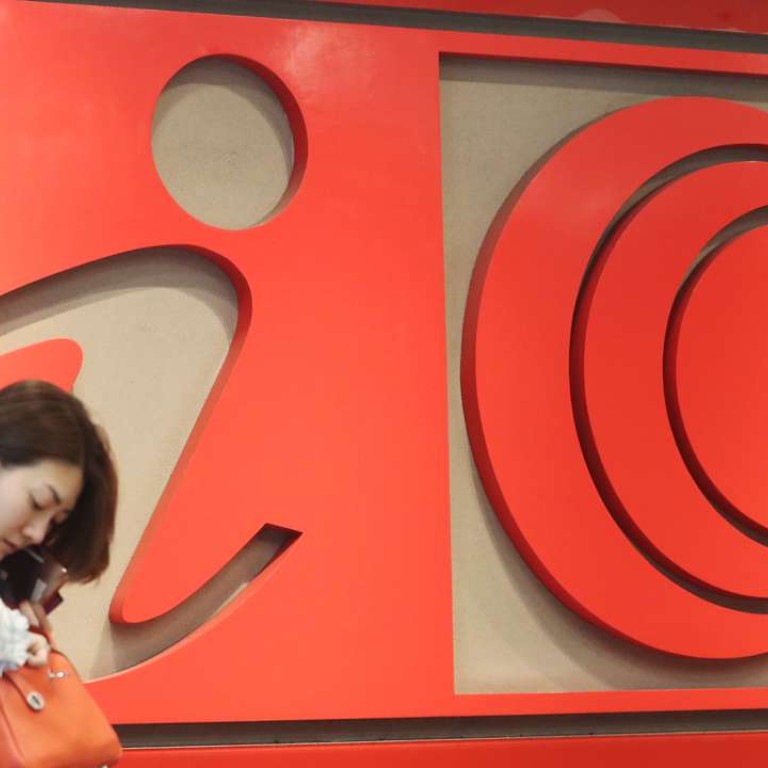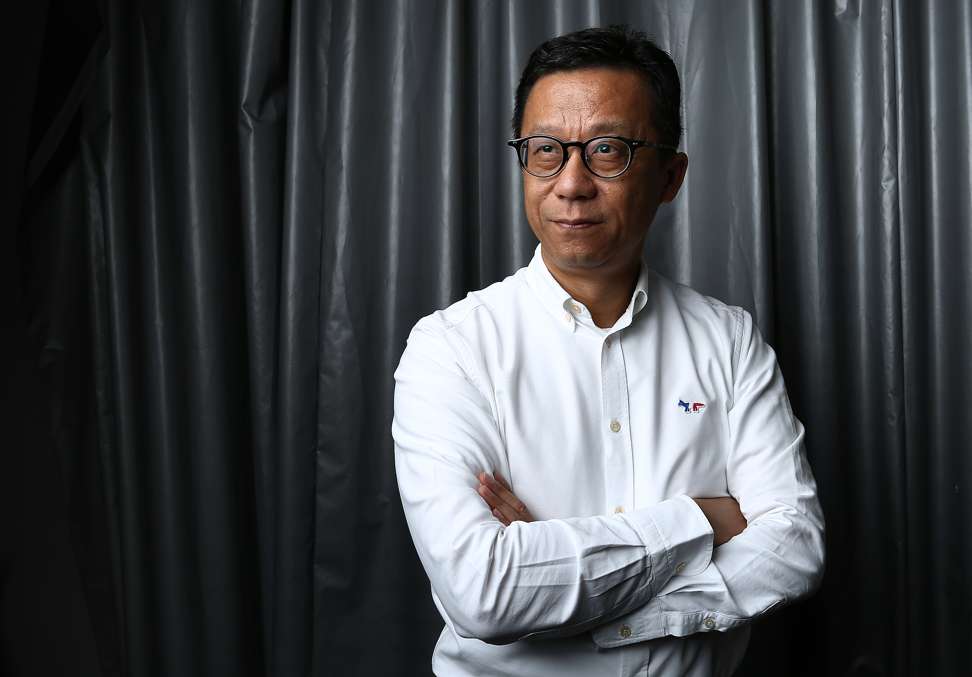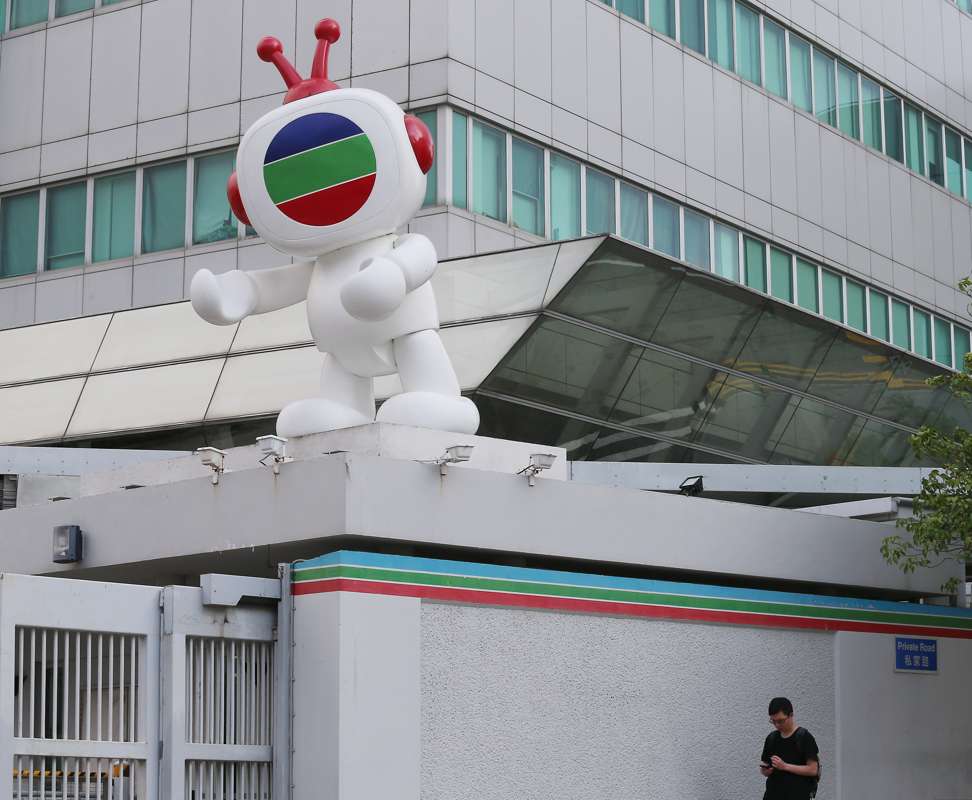
Hong Kong pay TV sector hits stormy weather
Pay TV operators – including one which may soon stop operating – are finding it increasingly harder to stay profitable as online services take hold
Wharf Holdings dropped a bombshell last week when it suddenly announced its imminent exit from the unprofitable pay TV business. Its decision to pull the plug on i-Cable has shattered hopes for the pay TV industry and set off alarm bells across the media.
It means the city’s oldest pay TV station may die when its current licence expires on May 31 – even though it was recently renewed for 12 years until 2029.
Not only could the move leave over 2,000 i-Cable staff out of work, it will also raise questions about the future of its affiliate, Fantastic TV, a new free-to-air TV station set to launch in May.

If maverick businessman Ricky Wong Wai-kay’s description of the industry’s ills is anything to go by, it boils down to “those who aspire to do it are not allowed to while those who want to quit are forced to undertake it”.
Wong argued that the existing policy had the right focus by encouraging more investors, but the i-Cable situation was caused by certain people in authority wrongly using their power.
The city’s TV industry had its glory days when it churned out classic dramas and fostered many superstars like Chow Yun-fat, Stephen Chow Sing-chi, Tony Leung Chiu-wai and Leslie Cheung Kwok-wing.
Those made-in-Hong Kong productions created a unique and popular Hong Kong culture that once swept across Southeast Asia and captured the imagination of tens of millions of viewers in many overseas Chinese communities especially in the 1980s and 90s, with an impact similar to that of today’s Korean wave.

Cultural critic Jimmy Pang Chi-ming said one of the factors that contributed to the downfall of the city’s TV industry was the waning appeal of star power, which gradually turned viewers off.
It is a common view among critics that Hong Kong now only has mediocre artists, while some well-known veterans have moved north to earn big money through mainland productions.
“The city’s TV stations have stopped training budding artists and have reduced their own productions catering to the tastes of the Hong Kong audience,” Pang said.
For example, TVB and ATV used to run their own artist training classes whose graduates later became superstars. TVB also hosted the famous New Talent Singing Championship which was the birthplace of well-known singers like late Canto-pop diva Anita Mui Yim-fong.
“With the mainland entertainment market gradually opening up, many well-known artists, including production crews, have given up on the local market to pursue more lucrative opportunities on the mainland. This has created a vicious cycle forcing local TV stations to rely increasingly on imported mainland and Korean productions to fill the gaps,” Pang said.
Without star appeal and a lack of choice and originality in programming, it is no wonder that local productions have failed to retain viewers.

Professor Anthony Fung Ying-him, of Chinese University’s school of journalism and communication, agreed that local productions were losing appeal to overseas viewers, especially those on the mainland and in Southeast Asian countries, as the media production sector in those countries was fast catching up.
For example, in 2005 about 40 per cent of TVB’s revenue came from overseas, but in 2015, the percentage dropped to 25 per cent, according to its financial report.
For Fung, the loss of viewers in the traditional media was inevitable amid rapid changes in telecommunications technology.
“Lower fees are charged for audiences to access media content online as technology advances ... Television is now just a small fraction among many forms of entertainment,” he said.
This is especially true for younger viewers, who are getting used to watching the same media content through devices like iPhones, laptops and iPads – and often for free.
Commercial brands started to advertise on new media platforms in response to ever changing media consumption habits, which resulted in great advertising losses, Fung said.
As the troubled i-Cable mainly produces news programmes and relies on the broadcast of overseas soccer matches to attract income, its revenue sources are limited.
To make matters worse, the subscriber base for i-Cable, the biggest player in the pay TV market, has shrunk by one-fifth to 909,000 households in the past five years.
The pay TV market at present is carved up by i-Cable with a 50 per cent market share, while Now TV and TVB Network Vision take up 28 per cent and 22 per cent respectively.
However, both i-Cable and Now TV are facing testing times in attracting advertisers as their profits are being constantly squeezed by leading player TVB and other new media companies, said a senior executive from a multinational advertising media company, who wanted to remain anonymous.
“Some social media outlets like Facebook or Google offer very targeted audiences based on their browsing habits, making them very appealing to advertisers who target specific segments.
“As for advertisers looking for the mass market, they prefer TVB that reaches a large population, so pay TV operators are left in an awkward position with neither mass appeal or a finely targeted audience,” the source said.
Tam Tsz-wang, media and technology analyst at brokerage DBS Vickers (Hong Kong), said slower economic growth had dampened overall advertising spending, while many internet-based newcomers had begun to threaten the profit margins of traditional TV stations.
In addition, the government’s failure to clamp down on widespread illegal sports streams had also added to the woes of the TV industry, especially for pay TV operators who have lost their bread and butter.
Echoing HKTV’s Ricky Wong, Pang believed the heaviest blow came from the restrictive government policy that pandered to Beijing’s taste and ideology as TV stations also had political and propaganda functions. As in the case of Wong’s failed bid for a TV licence, those who wanted to run or invest in a TV station would be subject to strict vetting by the government, Pang said.
“In the end, only those acceptable to Beijing will be allowed to invest in a TV licence. But they are only a bunch of investors who actually do not have a vision for the city’s TV stations. They just see it as an investment tool for generating big money. But when their TV stations fail to deliver what Hongkongers want and suffer losses, they will retreat,” he said.
Additional reporting by Raymond Cheng
TURBULENT TIMES
Recent developments in Hong Kong’s media industry
Oct 2013
The government gives free-TV licences to Now TV and i-Cable, but Ricky Wong Wai-kay’s HKTV loses out, despite investing billions of dollars and producing many highly acclaimed drama programmes.
Jan 2016
Netflix, which provides US dramas and films online and through apps, is launched in Hong Kong, with monthly fees starting at HK$63.
Mar-April 2016
Now TV’s free television channel, Viu TV, launches in March, followed by RTHK’s free television channels the next month.
April 2016
Asia Television, the first television company in Hong Kong, stops broadcasting after 59 years.
LeTV wins rights to show English Premier League soccer and later sells part of rights to Now. LeTV shakes market by giving free TV sets to soccer subscribers. Reports of company running into financial trouble and laying off staff.
July 2016
Metro Broadcast Corporation, controlled by tycoon Li Ka-shing’s companies, announces it will return its digital broadcasting licence to the government and stop digital radio services, though traditional radio channels are retained.
Aug 2016
Digital Broadcasting Corporation announces it will stop broadcasting and return its licence to the government.
Oct 2016
Mainland media magnate Li Ruigang, dubbed China’s Robert Murdoch, made vice-chairman of TVB.
Mar 2017
Wharf announces it will halt new investment in i-Cable, which has been in the red for nine years, after the current HK$400 million loan is used up. However, its free television unit Fantastic TV will launch on May 14.


